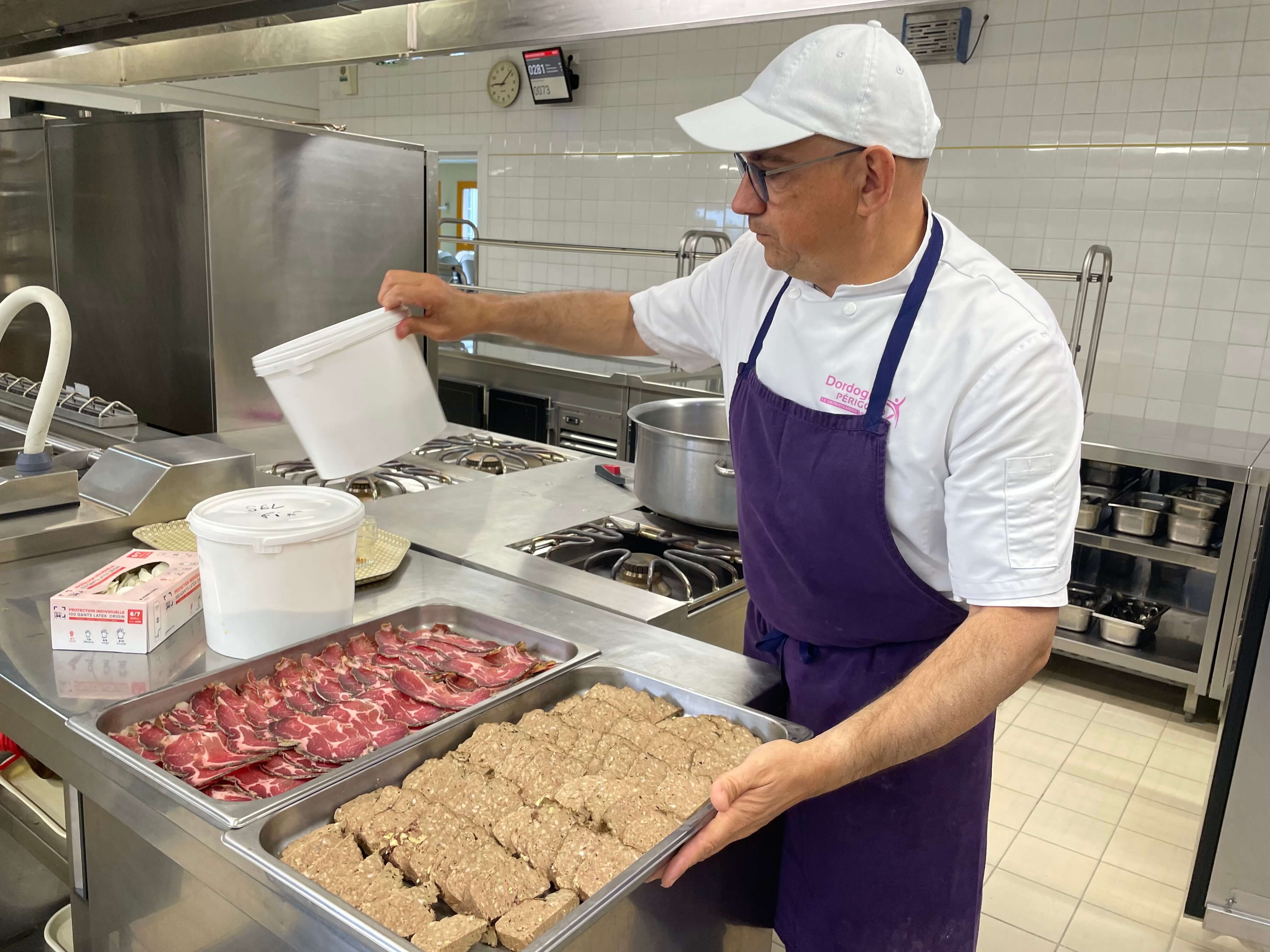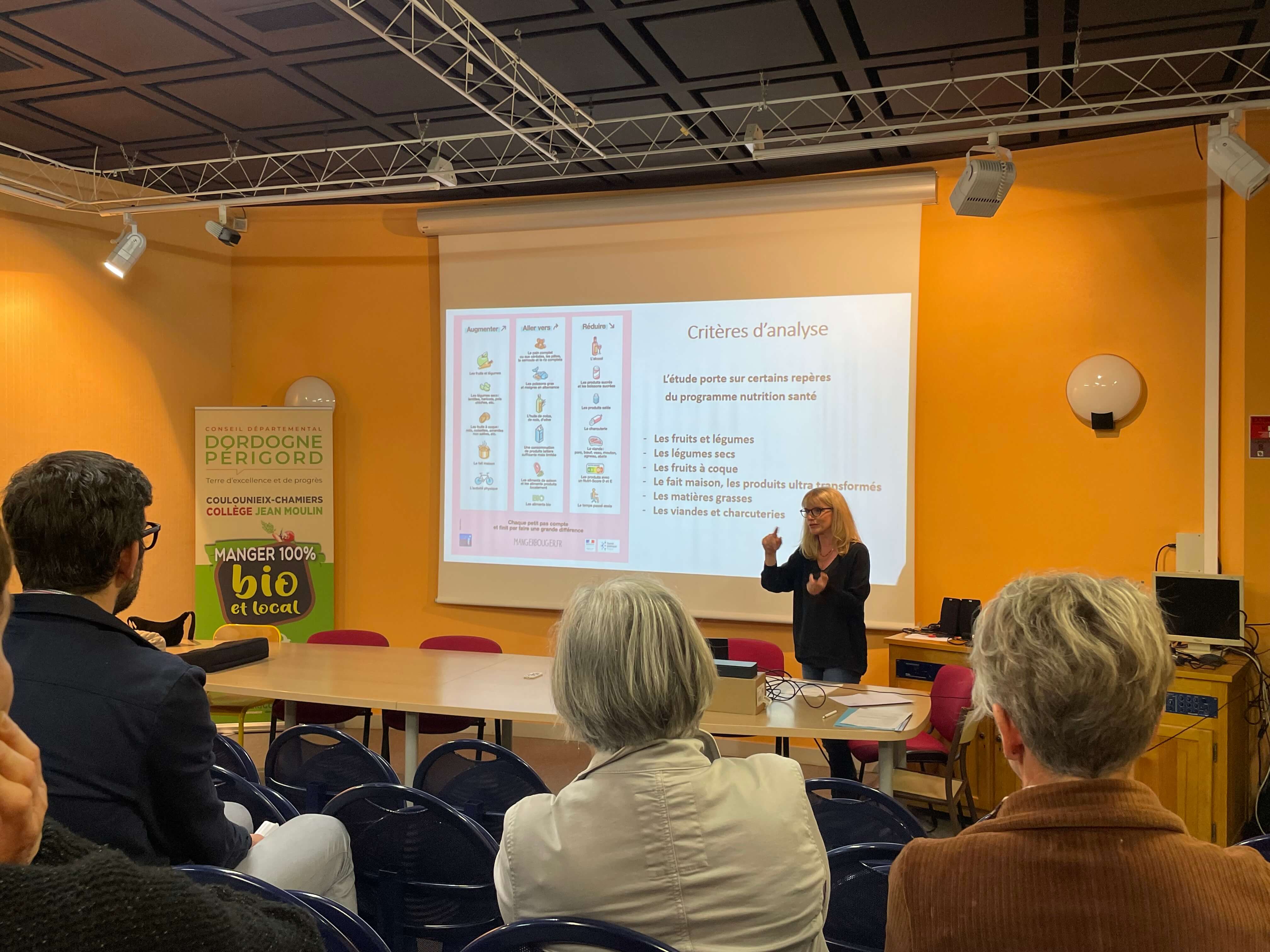Good food at school that’s also 100% organic? The school ‘Jean Moulin’ in Périgueux, Dordogne (France) shows that it can be done. Rikolto, a SF4C partner, paid a visit to the school and discovered how the school chefs conjure up organic delicacies on the table every day.
Since 2022, the students and teachers of the school ‘Jean Moulin’ only eat organic and local products. School chef Jérôme and his team manage to cook more than 200 meals every day with products from local farmers that are 100% organic. Normally the regional tender would require that only 20% of the food must be organic, according to local government rules. However, the school chose to use 100% organic products to better support local farmers, ensure fairer prices by cutting out middlemen, and improve health and environmental benefits.

“Admittedly, it was quite an adjustment in the beginning. We actually had to learn how to cook again,” says Jérôme, “but once we found our feet, it went quite smoothly. The quality of the meals has improved considerably.”
From farm to table
At the beginning of each week, local farmers supply the school with a great variety of products, which include fruit and vegetables, fresh milk, eggs and meat. Remarkably, the livestock farmers deliver entire animal carcasses. This is not the most beautiful sight, but Jérôme proudly explains that they use every piece, preventing food loss. The canteen cooking style also follows this no-waste philosophy: stale bread becomes croutons for salads, dried lemon peels transform into breadcrumbs and vegetable scraps end up in colourful soup. The entire kitchen team starts working from early in the morning so that everyone can enjoy a tasty offer in the afternoon, including a daily vegetarian option.
Students learn to value nature
“Well, eating is one thing,” Jérôme begins, “but students also have to learn about it. It makes them respect our planet more and then they also eat healthier at home.” An important lesson that the school is implementing as one step in nutrition education by involving the children in many activities.
| A green, tree-lined playground? | Check |
| A vegetable garden that the students help maintain? | Check |
| A lot of compost bins to fertilize that same vegetable garden? | Check |
| Beehives to make their own honey for the first time next year? | Check |
| Posters decorating the school restaurant with colourful images of seasonal vegetables in French and Occitan, the Romance dialect of the region? | Check |
The school is a great example of our ‘Whole School Food Approach‘, an all-encompassing approach to good food at school that was developed within SchoolFood4Change. The visit to the Dordogne showed how it can be done. The school is a great role model for schools across the EU.

Update, December 2024: A delegation of SchoolFood4Change representatives had the opportunity to visit our project partners in the Dordogne in November 2024. As was to be expected, this study trip left a lasting impression on everyone. After all, the Dordogne department is at the forefront with its ambitions for a healthy school food culture and sustainable school catering. Over two days, the delegation explored how the Dordogne region has implemented a model that provides middle school students with 100% organic, seasonal, sustainable and homemade meals – to the same cost as conventional school food. SchoolFood4Change partners met with farmers, cooks, school principles, teachers, local politicians, dietitians and pupils, who all contribute to this working system. Dordogne’s model shows the power of political will, community involvement, and sustainable practices. It offers valuable lessons for other regions aiming to improve their school food systems.



